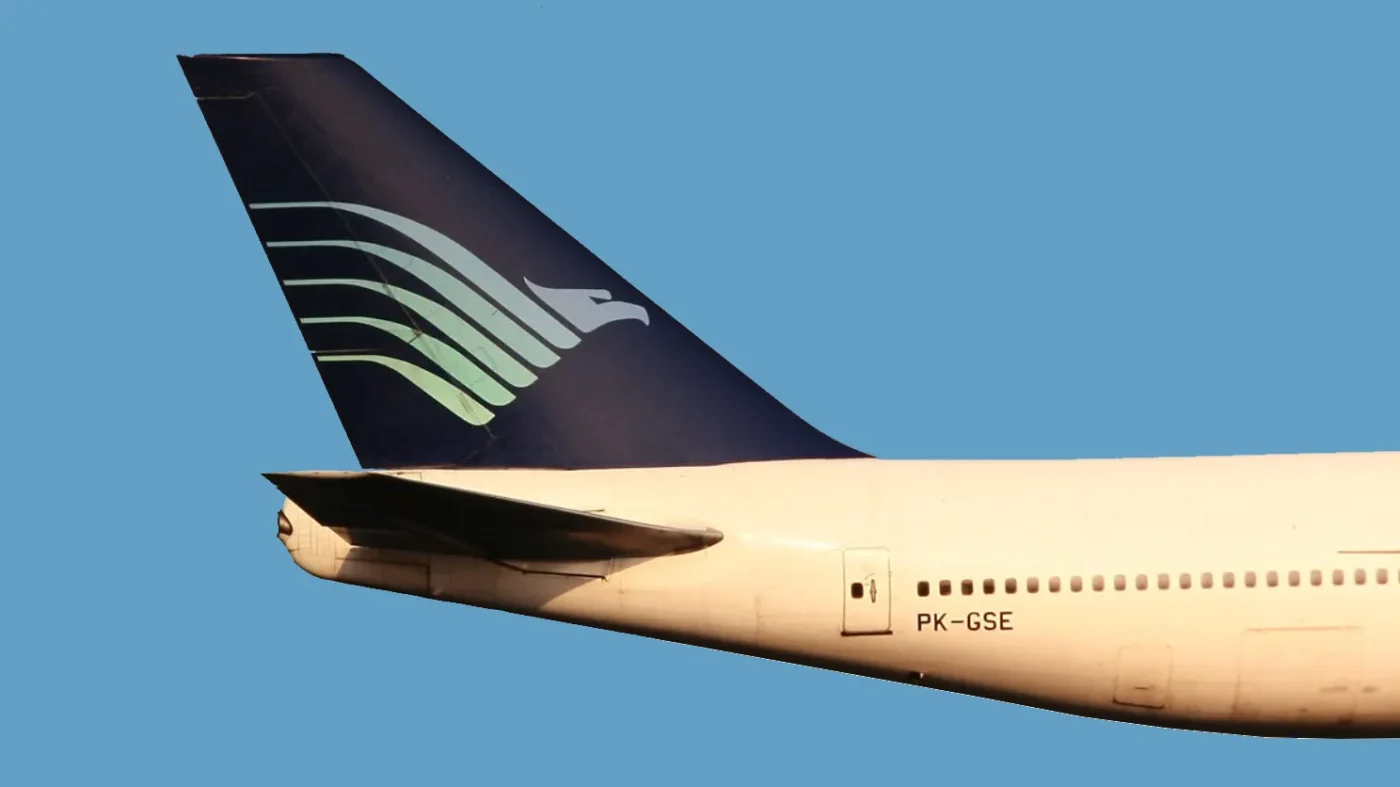Indonesia’s flag carrier, Garuda Indonesia, finds itself at the center of a growing storm as tensions between its management and pilots escalate over controversial hiring decisions and strained labor relations. The dispute, which has drawn attention from lawmakers and union leaders alike, raises critical questions about corporate governance, cost efficiency, and the airline’s path to financial recovery after narrowly averting bankruptcy in 2022.
Controversial Recruitment Sparks Outrage
The core of the conflict lies in the recent recruitment of several former employees from Lion Air, Indonesia’s largest private airline, into key positions at Garuda Indonesia. The Garuda Pilot Association (APG), part of the airline’s employee union, has criticized the move, alleging irregularities in the hiring process. The union has called on President Prabowo Subianto and State-Owned Enterprises (SOEs) Minister Erick Thohir to intervene and evaluate the newly appointed management.
“We’ve identified several irregularities in the recruitment process that must be reviewed, particularly from a good corporate governance standpoint” said APG vice president Rendy Wiryo Kusumo in a statement to Tempo on May 27, 2025. The union’s concerns are compounded by the fact that Garuda’s current CEO, Wamildan Tsani Panjaitan, appointed by the SOEs Ministry in November 2024, previously served as CEO of Lion Air, raising questions about potential conflicts of interest.
Adding fuel to the fire, unverified reports cited by Mufti Anam, a lawmaker at House of Representatives Commission VI, which oversees state-owned enterprises, suggest that the new hires are receiving salaries ranging from 25 million Indonesian Rupiah (US$1,538) to 117 million Indonesian Rupiah (US$7,200) per month. This reportedly adds approximately 1 billion Indonesian Rupiah (US$61,500) to Garuda’s monthly payroll expenses at a time when the airline is under pressure to cut costs. While these figures remain unconfirmed, the union has described the compensation as unusual and inconsistent with the government’s push for financial efficiency.
Financial Struggles and Safety Concerns
Garuda Indonesia’s financial woes provide a stark backdrop to the current dispute. The airline recorded a net loss of US$75.9 million in the first quarter of 2025, following a US$29.9 million loss for the entirety of 2024, according to its financial statements. This comes after a challenging period that saw the company restructure its liabilities in mid-2022 to avoid bankruptcy, a process that required creditor approval and significant cost-cutting measures.
The pilots’ union argues that the hiring decisions undermine these efforts, potentially jeopardizing the airline’s long-term sustainability. Beyond the financial implications, the APG has emphasized the importance of maintaining safety standards and delivering high-quality service to customers—priorities they believe could be compromised if cost inefficiencies persist. While no specific safety incidents have been linked to the current dispute, the union’s concerns reflect broader anxieties about the airline’s operational stability during a period of transformation.
Labor Relations Under Strain
Beyond the hiring controversy, the relationship between Garuda’s management and its employee representatives has deteriorated significantly. The APG has accused the airline’s leadership of treating the union as an adversary rather than a partner, pointing to poor communication and unilateral decision-making. One point of contention is the abrupt suspension of automatic payroll deductions for union membership fees, a policy implemented in 2024. The union views this as a deliberate attempt to undermine its influence, interpreting the move as a sign of bad faith.
In response, Garuda’s director of human capital and corporate services, Enny Kristiani, defended the policy, stating that it aims to uphold union independence by allowing employees to decide for themselves whether to join. “The goal is to return the decision to join a union directly to employees” she said in a statement on May 28, 2025. She also reiterated the company’s commitment to maintaining open communication with union representatives and providing operational support for their activities.
However, the union remains unconvinced, particularly as the company has taken the unusual step of filing police reports against individuals it claims misrepresented themselves as union members and spread false information about the recruitment process. According to Enny, such actions have damaged Garuda’s credibility among investors, customers, and employees. The union, in turn, has condemned the move as an attempt to silence dissent, further straining labor relations.
Management Defends Recruitment Policies
Garuda’s management has pushed back against the criticism, asserting that the recruitment process adhered to internal policies and was designed to accelerate the airline’s ongoing transformation. Enny Kristiani clarified that the newly hired employees are on fixed-term contracts, with compensation determined by company guidelines and aligned with market benchmarks. “Their compensation is aligned with prevailing market benchmarks” she said, emphasizing that the hires were a strategic decision to bolster the airline’s competitiveness.
The company also faces operational challenges beyond the labor dispute, including the grounding of 15 aircraft due to maintenance and financial issues, as reported by local media. While Garuda has not directly linked these challenges to the hiring controversy, the mounting pressures highlight the complexity of its recovery efforts. Additionally, the government is reportedly exploring options to expand Garuda’s fleet through Danantara, a state-backed initiative, though details remain limited at this stage.
Broader Implications for Indonesia’s Aviation Sector
The dispute at Garuda Indonesia reflects broader challenges within Indonesia’s aviation sector, where state-owned enterprises often navigate a delicate balance between political oversight, financial accountability, and operational demands. As a flag carrier, Garuda holds symbolic importance for the nation, representing not only a key player in the travel and tourism industry but also a source of national pride. Its struggles, therefore, resonate beyond the boardroom, influencing public perception of government stewardship over state assets.
Lawmakers like Mufti Anam have signaled that the controversy could prompt greater scrutiny of hiring practices across state-owned enterprises, particularly in industries with significant public impact. If the allegations of irregularities are substantiated, they may lead to calls for broader reforms in how such appointments are made, potentially affecting other sectors under the SOEs Ministry’s purview.
For Garuda’s pilots and employees, the dispute is more immediate, touching on issues of job security, workplace representation, and trust in leadership. The outcome of the union’s push for an evaluation of management practices could set a precedent for labor relations in Indonesia’s aviation industry, where unions have historically played a significant role in advocating for workers’ rights.
Looking Ahead: A Path to Resolution?
As the standoff between Garuda Indonesia’s management and its pilots continues, the airline faces a critical juncture. Resolving the dispute will require not only addressing the immediate concerns over hiring practices but also rebuilding trust between employees and leadership. The involvement of high-level officials, including President Prabowo Subianto and Minister Erick Thohir, underscores the political stakes involved, particularly given Garuda’s status as a state-owned entity.
For now, the airline’s financial recovery remains fragile, with losses mounting and operational challenges persisting. Whether the current leadership can navigate these turbulent waters—balancing cost efficiency with employee morale and public expectations—remains an open question. As stakeholders await further developments, the spotlight on Garuda Indonesia serves as a reminder of the complex interplay between corporate governance, labor rights, and national interests in one of Southeast Asia’s most dynamic economies.
















